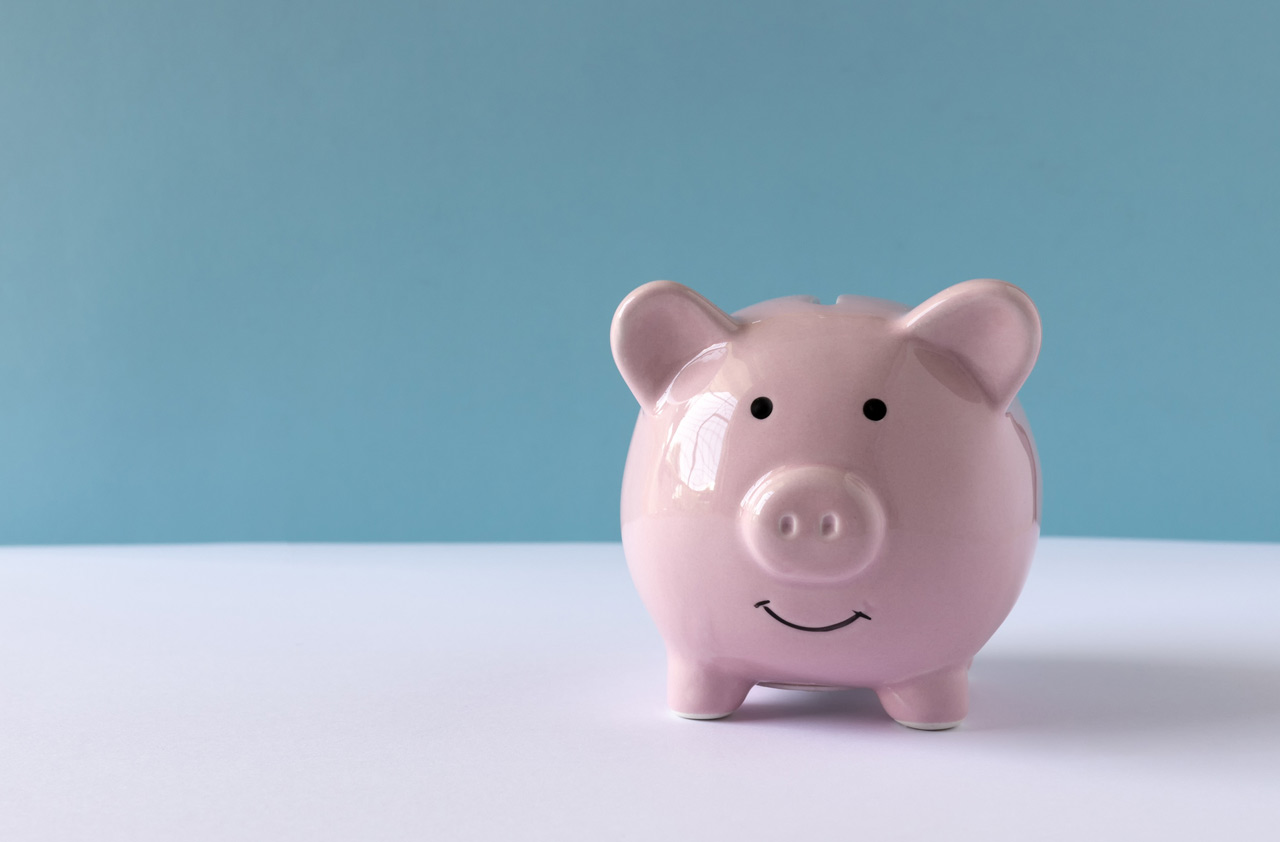COVID-19: A Once-in-a-Lifetime Chance to Change Our Spending Habits
The coronavirus pandemic has changed everything, including how we spend money. Are you spending less right now? Many people are. Here’s how to make the most of that opportunity.


Profit and prosper with the best of Kiplinger's advice on investing, taxes, retirement, personal finance and much more. Delivered daily. Enter your email in the box and click Sign Me Up.
You are now subscribed
Your newsletter sign-up was successful
Want to add more newsletters?

Delivered daily
Kiplinger Today
Profit and prosper with the best of Kiplinger's advice on investing, taxes, retirement, personal finance and much more delivered daily. Smart money moves start here.

Sent five days a week
Kiplinger A Step Ahead
Get practical help to make better financial decisions in your everyday life, from spending to savings on top deals.

Delivered daily
Kiplinger Closing Bell
Get today's biggest financial and investing headlines delivered to your inbox every day the U.S. stock market is open.

Sent twice a week
Kiplinger Adviser Intel
Financial pros across the country share best practices and fresh tactics to preserve and grow your wealth.

Delivered weekly
Kiplinger Tax Tips
Trim your federal and state tax bills with practical tax-planning and tax-cutting strategies.

Sent twice a week
Kiplinger Retirement Tips
Your twice-a-week guide to planning and enjoying a financially secure and richly rewarding retirement

Sent bimonthly.
Kiplinger Adviser Angle
Insights for advisers, wealth managers and other financial professionals.

Sent twice a week
Kiplinger Investing Weekly
Your twice-a-week roundup of promising stocks, funds, companies and industries you should consider, ones you should avoid, and why.

Sent weekly for six weeks
Kiplinger Invest for Retirement
Your step-by-step six-part series on how to invest for retirement, from devising a successful strategy to exactly which investments to choose.
In conversations with clients, colleagues and friends, there’s one habit many seem to struggle with: spending money. No matter how much we earn, the amount we spend often impacts more of a person’s future financial success than their income, savings or investment returns. Try as we might, cutting back our spending is never easy. Until now.
The current pandemic has impacted all of us. For more than 40 million Americans, it’s meant the loss of a job and a steady income. For those fortunate enough to have their health and their jobs, nearly everyone I’ve spoken with is spending much less money than they were three months ago.
We know there eventually will be pent-up demand for travel, dining out and other activities. My family is already dreaming about the vacations we will take. However, this forced spending reduction may be a once-in-a-lifetime opportunity to re-evaluate our spending habits, invest more and reshuffle the financial deck. The question now is: Can we sustain a modified spending level once we solve the COVID-19 puzzle and return to a more normal life?
Here are some recommendations on how to make at least some of these spending cuts permanent and bolster your finances:

Determine a New Monthly Budget
Many people are likely saving $200 month or more from less car maintenance, lower gasoline prices, no parking fees or dry cleaning and less dining out at restaurants. Even eliminating our daily visit to Starbucks or another drive-through restaurant can save $5-$10 daily.
Since working from home the past few months, I’ve been sweeping over to savings the money I would have ordinarily spent on gas to drive to my office and buying lunch out a few times a week. You may also consider paying down your mortgage or other debts with this surplus each month. If you are currently retired and spending less, this is a great opportunity to build up your cash reserves.
Take a few minutes to determine how much less you are spending now, and if there are opportunities to convert any short-term spending reductions into long-term gains. Even a $100 monthly reduction in expenses means an extra $1,200 in your bank each year.

Use a Short-Term Cash Surplus Wisely
Even if some savings are temporary, it’s the perfect time to sweep extra cash over to a savings account, fund a Health Savings Account, an Individual Retirement Account (IRA), Roth IRA or a 529 college education savings plan for your children or grandchildren. It can also be used to contribute to food banks and other charitable organizations to meet the needs of those most directly impacted by coronavirus.
On the other hand, you can start some positive habits now and carry them into the future, such as increasing the contribution rate into your 401(k) plan. For example, someone earning $100,000 annually who has been contributing 8% of their income to a 401(k) may be able to bump up that contribution to 10%. The extra $2,000 annual contribution, growing over several years, will likely provide you with a significant increase in your retirement account.

Turn That Canceled Vacation into an Investment
If you have a pile of cash tucked away for a major trip that’s been canceled, consider the benefits of investing that money. For example, if a couple had planned to spend $5,000 or more on a romantic getaway to Europe or a family trip to a theme park, they may now be choosing a less costly vacation that makes it easier to adhere to health and safety guidelines.
Others may be canceling these trips and staying at home until new infections in their state or county continue to recede. If you have money that you now won’t be spending for at least three years, consider investing it in a balanced portfolio in a brokerage account. If you think you’ll need the money sooner, consider opening a high-yield savings account with an online bank.

Think Twice about a New Car
Some people who had planned to buy a new car may be re-evaluating the need to drive as much once the economy recovers. If working from home is now a permanent option for one or more persons in the household, it may make more sense to buy a used car and save thousands of dollars, or hold off on a purchase for a few more years. Less mileage on your car now means it could run a lot longer.

Keep Those Good Habits Going
Everyone needs to save for something. Now we all have the opportunity to create a “new normal” and form new spending and savings habits. A few thoughtful moves now can make a big impact for years to come. Take advantage of the forced broken habits and decide for yourself which habits you’ll take with you into the future.
Written by Josh Monroe, a CERTIFIED FINANCIAL PLANNER™ practitioner and a Chartered Financial Consultant designee who listens actively and plans thoughtfully to help clients achieve their goals. He joined the Brightworth team in 2019 as a Financial Planner. Before Brightworth, Josh spent eight years at a leading insurance and investment firm in a variety of roles, including compliance and supervision. Josh is passionate about financial planning and making complex concepts easy to understand.
This article was written by and presents the views of our contributing adviser, not the Kiplinger editorial staff. You can check adviser records with the SEC or with FINRA.
Profit and prosper with the best of Kiplinger's advice on investing, taxes, retirement, personal finance and much more. Delivered daily. Enter your email in the box and click Sign Me Up.

Josh Monroe is a CERTIFIED FINANCIAL PLANNER™ practitioner and a Chartered Financial Consultant designee who listens actively and plans thoughtfully to help clients achieve their goals. He joined the CI Brightworth team in 2019 as a Financial Planner. Before CI Brightworth, Josh spent eight years at a leading insurance and investment firm in a variety of roles, including compliance and supervision. Josh is passionate about financial planning and making complex concepts easy to understand.
-
 Nasdaq Leads a Rocky Risk-On Rally: Stock Market Today
Nasdaq Leads a Rocky Risk-On Rally: Stock Market TodayAnother worrying bout of late-session weakness couldn't take down the main equity indexes on Wednesday.
-
 Quiz: Do You Know How to Avoid the "Medigap Trap?"
Quiz: Do You Know How to Avoid the "Medigap Trap?"Quiz Test your basic knowledge of the "Medigap Trap" in our quick quiz.
-
 5 Top Tax-Efficient Mutual Funds for Smarter Investing
5 Top Tax-Efficient Mutual Funds for Smarter InvestingMutual funds are many things, but "tax-friendly" usually isn't one of them. These are the exceptions.
-
 Social Security Break-Even Math Is Helpful, But Don't Let It Dictate When You'll File
Social Security Break-Even Math Is Helpful, But Don't Let It Dictate When You'll FileYour Social Security break-even age tells you how long you'd need to live for delaying to pay off, but shouldn't be the sole basis for deciding when to claim.
-
 I'm an Opportunity Zone Pro: This Is How to Deliver Roth-Like Tax-Free Growth (Without Contribution Limits)
I'm an Opportunity Zone Pro: This Is How to Deliver Roth-Like Tax-Free Growth (Without Contribution Limits)Investors who combine Roth IRAs, the gold standard of tax-free savings, with qualified opportunity funds could enjoy decades of tax-free growth.
-
 One of the Most Powerful Wealth-Building Moves a Woman Can Make: A Midcareer Pivot
One of the Most Powerful Wealth-Building Moves a Woman Can Make: A Midcareer PivotIf it feels like you can't sustain what you're doing for the next 20 years, it's time for an honest look at what's draining you and what energizes you.
-
 I'm a Wealth Adviser Obsessed With Mahjong: Here Are 8 Ways It Can Teach Us How to Manage Our Money
I'm a Wealth Adviser Obsessed With Mahjong: Here Are 8 Ways It Can Teach Us How to Manage Our MoneyThis increasingly popular Chinese game can teach us not only how to help manage our money but also how important it is to connect with other people.
-
 Looking for a Financial Book That Won't Put Your Young Adult to Sleep? This One Makes 'Cents'
Looking for a Financial Book That Won't Put Your Young Adult to Sleep? This One Makes 'Cents'"Wealth Your Way" by Cosmo DeStefano offers a highly accessible guide for young adults and their parents on building wealth through simple, consistent habits.
-
 Global Uncertainty Has Investors Running Scared: This Is How Advisers Can Reassure Them
Global Uncertainty Has Investors Running Scared: This Is How Advisers Can Reassure ThemHow can advisers reassure clients nervous about their plans in an increasingly complex and rapidly changing world? This conversational framework provides the key.
-
 I'm a Real Estate Investing Pro: This Is How to Use 1031 Exchanges to Scale Up Your Real Estate Empire
I'm a Real Estate Investing Pro: This Is How to Use 1031 Exchanges to Scale Up Your Real Estate EmpireSmall rental properties can be excellent investments, but you can use 1031 exchanges to transition to commercial real estate for bigger wealth-building.
-
 Should You Jump on the Roth Conversion Bandwagon? A Financial Adviser Weighs In
Should You Jump on the Roth Conversion Bandwagon? A Financial Adviser Weighs InRoth conversions are all the rage, but what works well for one household can cause financial strain for another. This is what you should consider before moving ahead.
